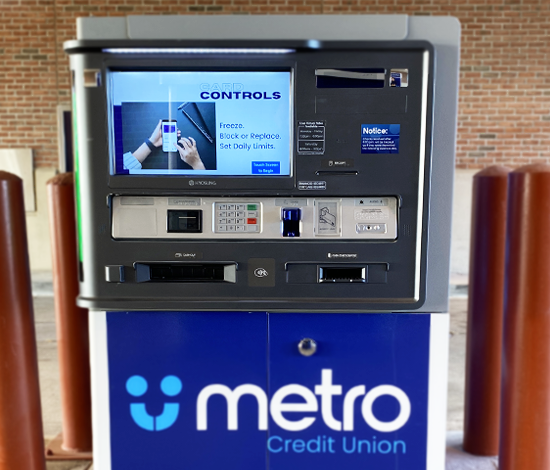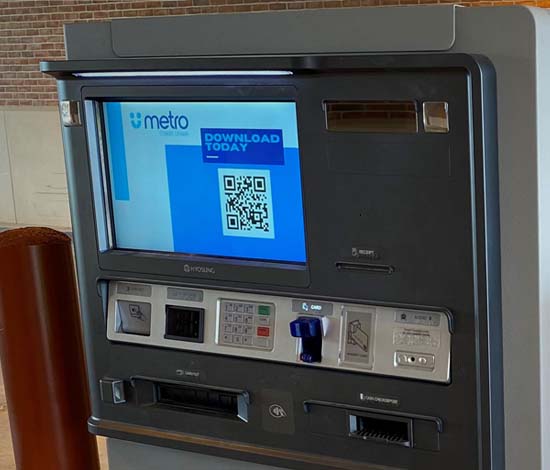May 6, 2025
Tips for First-Time Homebuyers
<p>Are you thinking about buying a home in the Greater Omaha area? This will be one of the biggest financial decisions you’ll ever make, so it’s important to be well-prepared, especially if you’re a first-time buyer. </p><p>Here are some tips and advice to help you easily navigate the process.</p><img src="/images/default-source/blog-article-images/tipsforfirsttimehomebuyersblog.png?sfvrsn=103b688_1" sf-size="100" alt="" /><h3>Make Sure You're Ready for Homeownership</h3><p>To start off on the right foot when buying a home, it's important to evaluate your finances. Consider your income, spending habits, savings, and budget to determine how much you can comfortably afford on a mortgage.</p><p>Many first-time home buyers know that owning a home is a significant, long-term expense, but they might not think about the potential for unexpected expenses in addition to their monthly mortgage payment. Here are some questions to ask yourself:</p><ul><li>Do I have a stable income?</li><li>Am I prepared to handle home repairs? As a homeowner, you will be responsible for fixing things like the roof or air conditioning if they break. It's a good idea to save about 1% to 3% of your home's value for home maintenance and regular upkeep.</li><li>Am I ready to live in this home and neighborhood long enough (ideally 5 years or longer) to build some equity in my house?</li><li>Have I determined the maximum amount I can afford to spend on housing? <a href="/resources/financial-calculators/mortgage-affordability-calculator" target="_blank">Knowing your mortgage costs</a> will help you plan your budget.</li></ul><h3>Evaluate Your Financial Goals</h3><p>Think about both short-term and long-term financial goals in addition to homeownership. Are you saving for education, paying off debt, planning for retirement, or starting a business? Knowing your full financial picture helps you make better decisions that match your goals.<br /></p><h3>Start Saving Early</h3><p>The more time you have to save, the better. A larger down payment lowers interest costs, reduces monthly payments, and may help you get a better rate. You may also need to pay extra each month for private mortgage insurance (PMI) if your down payment is less than 20%.</p><p>To avoid PMI and keep your payments lower, try to save at least 20% of the home's purchase price. Additionally, plan for closing costs, which typically range from 2% to 6% of your loan amount. Closing costs include appraisals, title insurance, and lender fees. Your lender can provide an estimate upfront.</p><h3>Check Your Credit Score</h3><p>Your credit score heavily influences mortgage approval and interest rates. Regularly checking your FICO® Score will help you make informed decisions and take steps to improve your credit if necessary. Each quarter, Metro Credit Union provides our members with their updated FICO® Score, available in <a href="/services/online-banking" target="_blank">online banking</a> under the tools section.</p><h4 style="margin-left:30px;">Accessing Your Free Annual Credit Report</h4><p style="margin-left:30px;">Under federal law, you can obtain a free copy of your credit report from each of the nationwide consumer reporting agencies once a year. Monitoring your credit report annually ensures the accuracy of your credit history. Here’s how you can obtain your free annual credit report:</p><ul style="margin-left:30px;"><li><strong>By Phone:</strong> Call toll-free: 1.877.322.8228.</li><li><strong>Online:</strong> Visit <a href="http://www.annualcreditreport.com" target="_blank" data-sf-ec-immutable="">www.annualcreditreport.com</a> to request your credit report online.</li><li><strong>By Mail:</strong> Obtain the Annual Credit Report Request Form from the <a href="https://www.annualcreditreport.com/manualRequestForm.action" target="_blank" data-sf-ec-immutable="">Federal Trade Commission's website</a>. Fill out the form and mail it to Annual Credit Report Request Service, P.O. Box 105281, Atlanta, GA 30348-5281.</li></ul><h3>Be Flexible</h3><p>Finding your dream home and buying the right home may not be the same. Staying flexible can help you become a homeowner. Explore different locations, home types, sizes, and fixer-uppers. Expanding your options may lead to a more affordable home that still fits your needs. A buyer’s real estate agent can also help you find the right home, negotiate for you, and make sure you don’t overpay.</p><h3>Understand Your Loan Options</h3><p>Metro has a variety of home loan options to meet your preferences:</p><ul><li><strong>Conventional Loan:</strong> Requires a higher credit score and down payment but offers competitive interest rates.</li><li><strong>FHA Loan:</strong> Insured by the Federal Housing Administration, often with lower credit score requirements and smaller down payments.</li><li><strong>VA Loan: </strong>Available to eligible veterans, active-duty service members, and certain members of the National Guard and Reserves, offering excellent terms, which could include no money down, though closing costs still apply.</li></ul><h3>Mortgage Pre-Approval</h3><p>Getting pre-approved for a mortgage gives you an advantage in a competitive market. The lender reviews your finances and provides a letter stating how much you can borrow. This shows sellers you're a serious buyer and strengthens your credibility.</p><h3>Be Prepared for the Closing Costs</h3><p>Once you’ve found your dream home, the closing process begins. This involves finalizing the mortgage, signing paperwork, and transferring ownership. Work with your lender and real estate agent to keep the closing process smooth.</p><h3>Your Trusted Mortgage Lender: Get Started Today</h3><p>Metro Credit Union is here to guide you through the homebuying process with personalized service and expert advice. Our friendly team will help you find the right mortgage for your dream home. </p><p>We proudly serve Omaha, Bellevue, Papillion, and surrounding Nebraska communities, supporting you from pre-approval to closing. <a href="/loans/mortgage-loans" target="_blank">Contact us</a> today to take the next step with a trusted local partner.</p>
Buying your first home is a big decision. This blog is your comprehensive guide to break down the mortgage process into smaller, more manageable steps.
Read Article about Tips for First-Time Homebuyers















































































